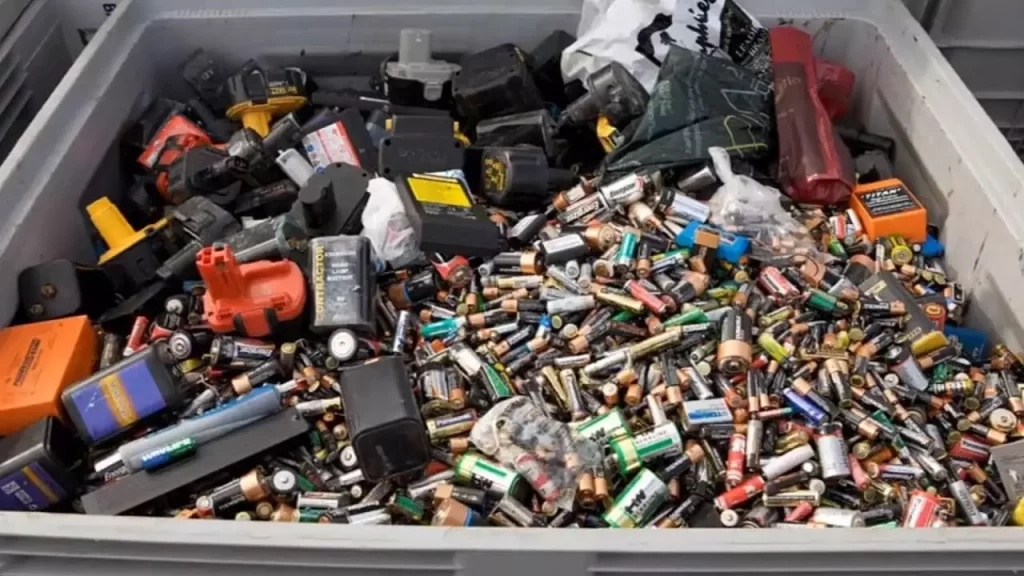With the rapid advances in technology, it’s easy to overlook the everyday essentials we rely on. Batteries, for instance, are the powerhouses of many of our devices. Yet, how often do we truly consider the proper care and storage of them? Improper storage can lead to battery leaks, which not only waste money but can also damage your devices and pose safety risks. Just as we’ve adopted smart habits for DIY electrical projects, it’s time to apply that same wisdom to battery care.

Content
Why Do Batteries Leak?
Battery leakage, often seen as a white or crystalline substance, occurs due to several reasons:
- Age: Older batteries or those with expired dates are more likely to leak.
- Heat: Exposure to high temperatures can lead to internal corrosion.
- Mixed battery types: Combining different battery brands or old with new ones can cause leakage.
- Device incompatibility: Using batteries not recommended for a particular device might cause them to leak.
To prevent battery leakage, a better understanding of battery care can go a long way. And if you’re keen on optimizing your batteries’ life, understanding what is battery reconditioning can save you money and reduce waste.
Steps to Store Batteries Safely
- Check Expiry Dates: Like perishable goods, batteries come with expiration dates. Always check these before storing them.
- Original Packaging: The best way to store batteries is in their original packaging, ensuring they don’t touch or rub against each other.
- Cool and Dry Place: A drawer or a closet is an ideal location. Batteries should be kept away from direct sunlight and moisture.
- Separate Different Types: Different battery types have different chemistries. Mixing them can result in leakage.
- Store in Special Containers: If you’ve removed batteries from their original packaging, use specialty battery storage containers. These are readily available and relatively inexpensive.
- Avoid Refrigeration: There’s a myth that storing batteries in the fridge can prolong their life. This is not accurate and can, in fact, cause more harm.
- Recycle Old Batteries: Once they reach the end of their life, ensure they are recycled properly.
Recognizing and Handling Leaky Batteries
Even with the best care, some batteries might leak. It’s crucial to know how to handle this:
- Safety First: Wear protective gloves. The substance that leaks out is caustic and can cause skin irritations.
- Dispose of Safely: Leaky batteries should not be used. Dispose of them according to local guidelines or recycling facilities.
- Clean the Device: If a battery leaks inside a device, clean it carefully. A mixture of vinegar or lemon juice can neutralize the alkaline discharge.
By incorporating these practices, you can ensure the longevity of your batteries, prevent potential damage to devices, and promote safety. Just as being eco-friendly and sustainable is essential in green innovations, applying the same principles to battery care is equally crucial. It not only saves money but also contributes to a reduction in electronic waste.
In Conclusion
Batteries might be small, but their significance in our daily lives is vast. Like any component, they deserve proper care and attention. As we continue to innovate and rely on portable devices, understanding the basics of battery care will become even more crucial. Remember, it’s not just about prolonging the life of a battery but also ensuring our safety and the durability of our devices.
Stay informed, stay safe, and always be ready to embrace knowledge that enhances your day-to-day living.
The Environmental Impact of Batteries
Battery waste has a considerable impact on our environment. When disposed of improperly, chemicals from batteries can seep into the ground, contaminating soil and water. Heavy metals like cadmium, mercury, and lead present in batteries can pose serious environmental and health risks. It’s essential to understand that even as we use these compact power sources, there’s a much larger global impact. Choosing rechargeable batteries, for instance, can help reduce the amount of waste since they can be reused multiple times before disposal.
Innovations in Battery Technology
As the world becomes more technologically advanced, there’s a growing need for batteries that last longer, charge faster, and are environmentally friendly. There have been exciting developments in battery technology recently, from solid-state batteries to those using graphene. These innovations promise a future where batteries are more efficient, reducing the need for frequent replacements and, by extension, waste. As consumers, staying updated on such advancements can lead to more informed buying decisions, ensuring that we opt for both performance and sustainability.
The Importance of Consumer Awareness
Consumers play a pivotal role in the lifecycle of batteries. By being informed about the proper care, use, and disposal of batteries, they can make a significant difference in environmental conservation. Awareness campaigns, educational programs in schools, and community initiatives can go a long way in ensuring that every individual understands their role. Manufacturers, too, have a responsibility to provide clear instructions and offer recycling programs. When both manufacturers and consumers work hand in hand, a sustainable future is within reach.

Melissa Day is a dedicated home blogger who has been blogging for over six years. She covers everything home related. Melissa also loves writing posts about her travels to Europe with her husband and two children.












